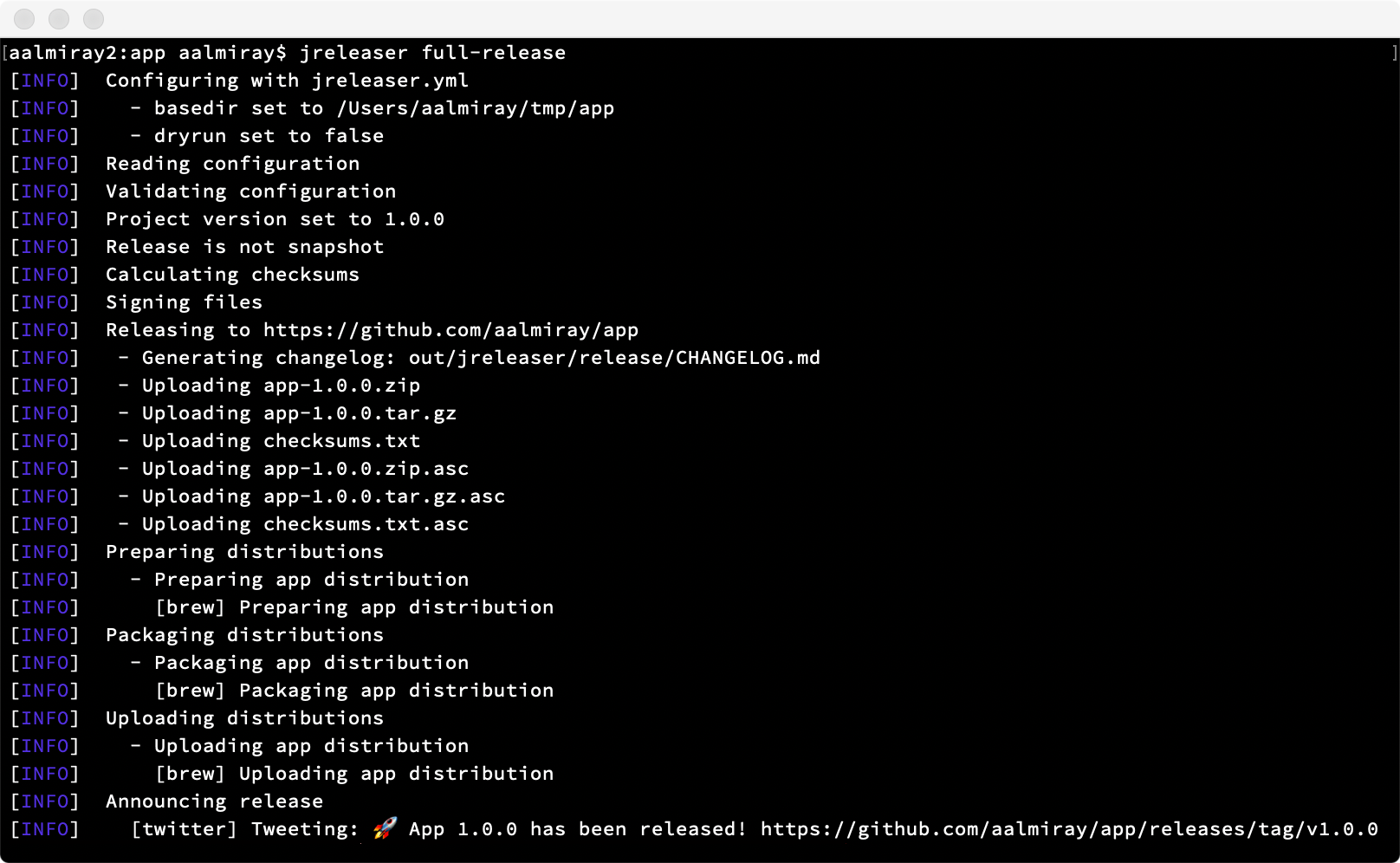
JReleaser

JReleaser is a release automation tool. Its goal is to simplify creating releases and publishing artifacts to multiple package managers while providing customizable options.
JReleaser takes inputs from popular builds tools (Ant, Maven, Gradle) such as JAR files, binary distributions (.zip, .tar), JLink images, or any other file that you’d like to publish as a Git release on popular Git services such as GitHub, GitLab, or Gitea. Distribution files may additionally be published to be consumed by popular package managers such as Homebrew, Chocolatey, Snapcraft, or get ready to be launched via JBang. Releases may be announced in a variety of channels such as Twitter, Zulip, SDKMAN!, and more.
GitHub Download JReleaser Website JReleaser Bugtracker JReleaser FAQ Donate
Usage
JReleaser is available as an AppImage which means "one app = one file", which you can download and run on your Linux system while you don't need a package manager and nothing gets changed in your system. Awesome!
AppImages are single-file applications that run on most Linux distributions. Download an application, make it executable, and run! No need to install. No system libraries or system preferences are altered. Most AppImages run on recent versions of Arch Linux, CentOS, Debian, Fedora, openSUSE, Red Hat, Ubuntu, and other common desktop distributions.
Running JReleaser on Linux without installation
Unlike other applications, AppImages do not need to be installed before they can be used. However, they need to be marked as executable before they can be run. This is a Linux security feature.Behold! AppImages are usually not verified by others. Follow these instructions only if you trust the developer of the software. Use at your own risk!
Download the JReleaser AppImage and make it executable using your file manager or by entering the following commands in a terminal:
chmod +x ./*.AppImageThen double-click the AppImage in the file manager to open it.
Sandboxing JReleaser
If you want to restrict what JReleaser can do on your system, you can run the AppImage in a sandbox like Firejail. This is entirely optional and currently needs to be configured by the user.
Updating JReleaser
If you would like to update to a new version, simply download the new JReleaser AppImage.
Integrating AppImages into the system
If you would like to have the executable bit set automatically, and would like to see JReleaser and other AppImages integrated into the system (menus, icons, file type associations, etc.), then you may want to check the optional appimaged daemon.
Note for application authors
Thanks for distributing JReleaser in the AppImage format for all common Linux distributions. Great! Here are some ideas on how to make it even better.
Pro Tips for further enhancing the JReleaser AppImage
Please consider to add update information to the JReleaser AppImage and ship a .zsync file so that it can be updated using AppImageUpdate. Tools like appimagetool and linuxdeployqt can do this for you easily.
Thanks for shipping AppStream metainfo inside your AppImage. Please open a pull request on https://github.com/AppImage/appimage.github.io/blob/master/data/JReleaser if you have changed it and would like to see this page updated accordingly.
